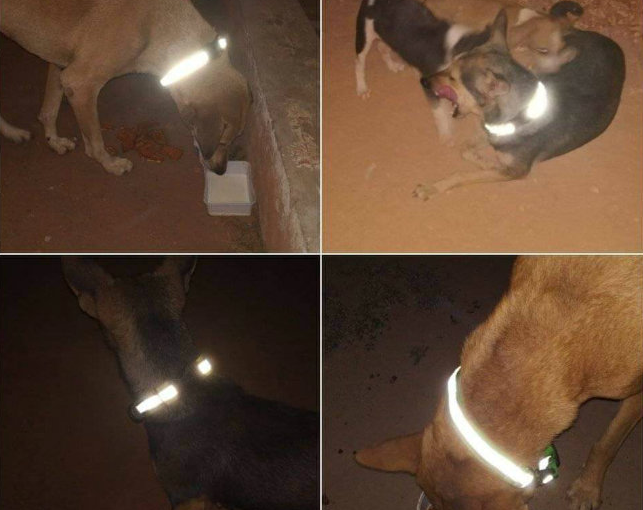In an attempt to save dogs from falling victim to traffic accidents, a Mangaluru-based animal rescuer has set out on a mission to tag the animals with reflective collars. 31-year-old Tauseef Ahmed, an MBA graduate, and a realtor have come to be known as Mangaluru’s animal rescuer. He has already tagged 400 dogs with the reflective belts in the coastal city, he says.
An activist with the city-based Animal Care Trust (ACT) in Surathkal for over a decade, Tauseef says he wanted to prevent accidents and reduce the number of deaths of animals. “Based on my observations, I gathered that most of these accidents occur during the night time due to the lack of visibility of the stray animals. Especially close to the highway, there is an unaccounted number of deaths of these animals on the road,” he says.
Last year, Tauseef was the youngest recipient of “Best Street Care and Rescue” award at India for Animals (IFA).
The belts work similarly to the reflective signs on the road. When direct light (from vehicles) is emitted on these strips, it reflects the driver. The activist hopes that these reflectors will catch the attention of the drivers from about 50 meters away and make them slow down. As per the 19th Livestock Census (Karnataka) in 2012, Dakshina Kannada has the highest number of dogs at 1,46,510.
“The reflector belt on dogs not only saves the lives of these animals, but it also saves the lives of the drivers,” Tauseef says. He points out that there are multiple incidents involving stray dogs and two-wheelers in which both the vehicle topples, injuring both the rider and the animal. A simple reflector can aid in preventing such accidents, he added.
Pegged at the cost of Rs 40, Tauseef says he used his savings to buy about 500 belts from Indore. “We have already distributed them to a few residents and animal lovers to identify stray dogs and protect them. Inspired by the initiative, few locals have also taken into sponsoring ‘stray’ animals with belts,” he says.
Born and raised at Kudremukh in Chikmagalur district, Tauseef moved to Mangaluru about 13 years ago. After growing up in a place where animals of all kinds were cared for, including dogs, cats, cows, and elephants, he was shocked to see the numerous animals killed in road accidents.
Initially, Tauseef wanted to tag cattle with reflective tapes as well since cows are also frequent victims of road accidents. However, he says, “I was concerned if they will be misused by the perpetrators to identify cattle for meat purposes.”
Tauseef works go beyond just reflective collars as he tried to treat injured animals in the city as well. The activist says he spends about 30 to 40 percent of his salary for animal treatment, including buying medicines or injections. “About 80 percent of cases are treated on-site,” he says, “If the cases are severe, then with help of a team from ACT, we take the animal to the hospital for further treatment.”
